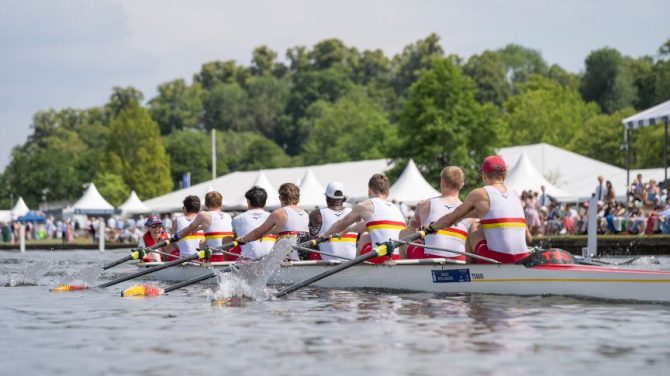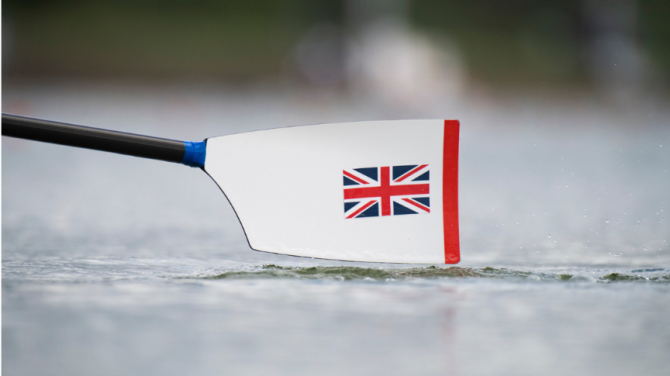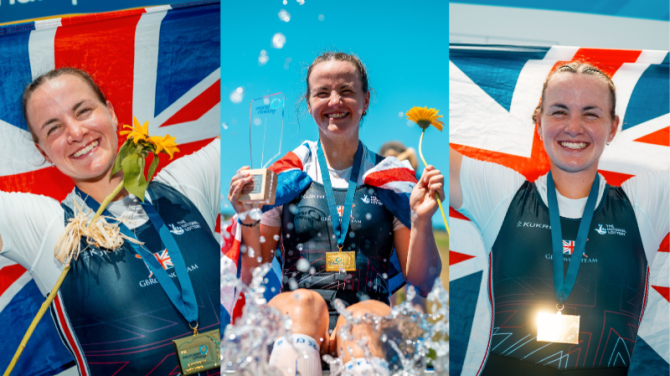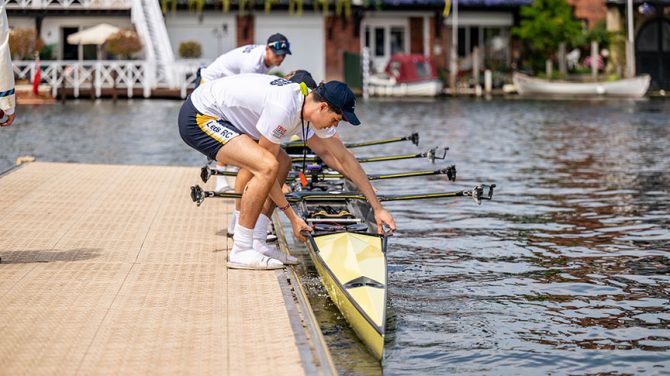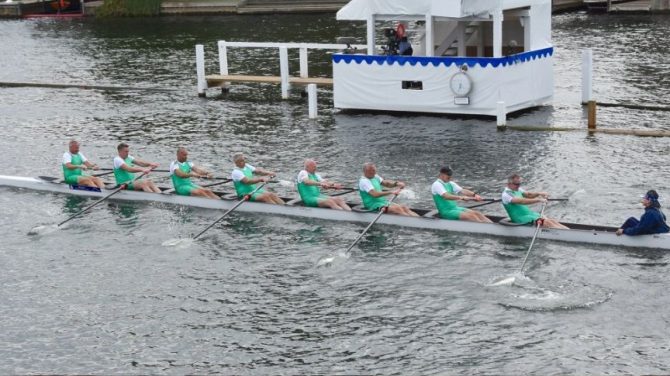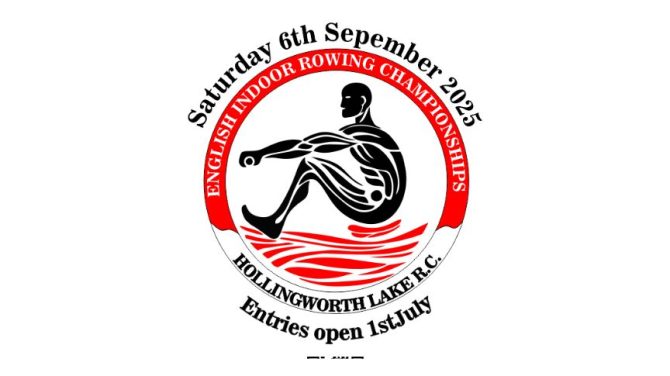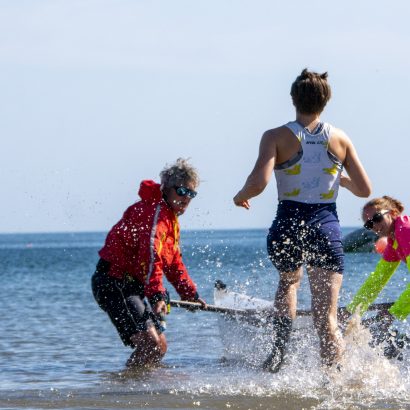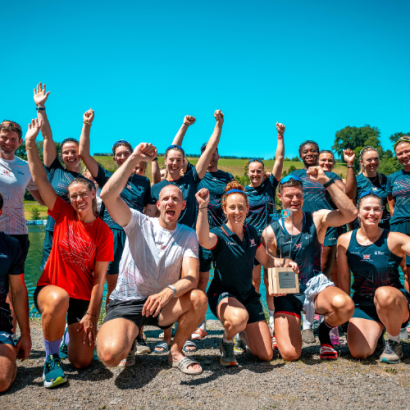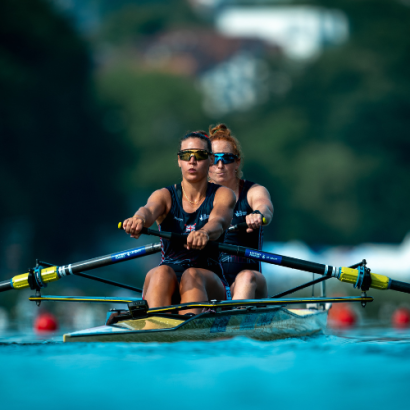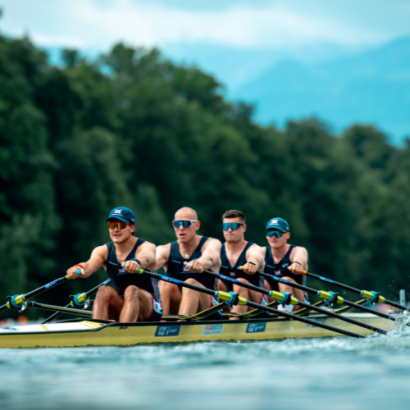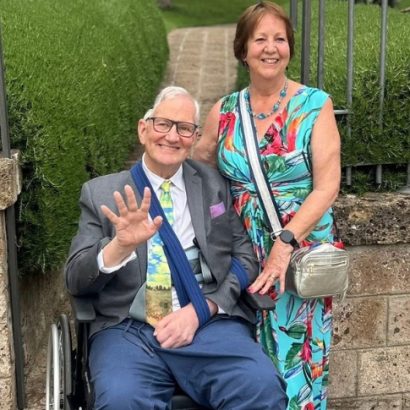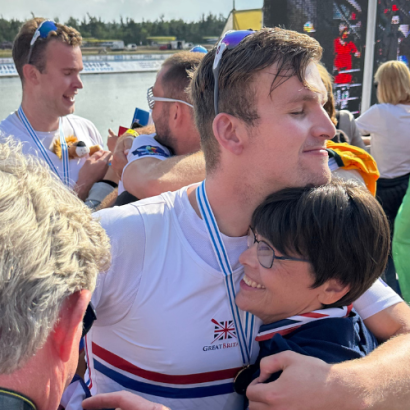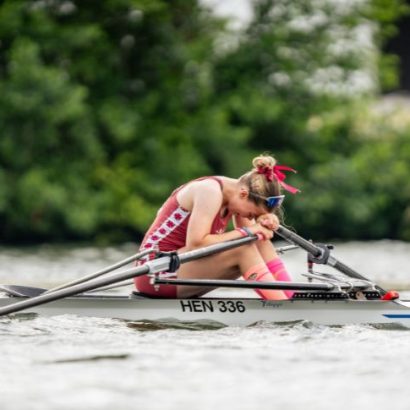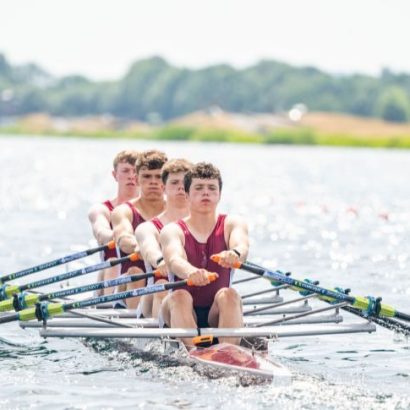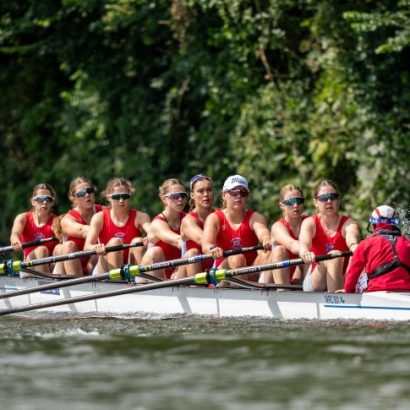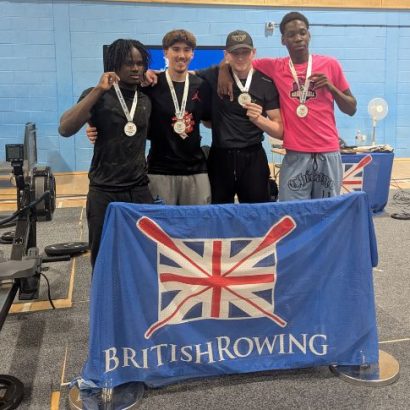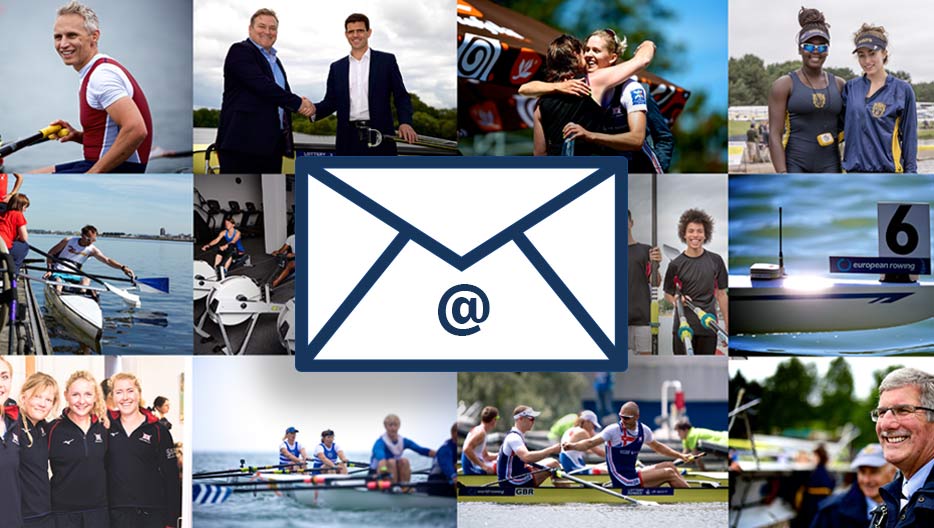News
Firsts at Henley Royal Regatta: What it means to race the iconic course
Winning a red box is the dream for many, but making it past Qualifiers is a phenomenal feat in of itself
The greatest Henley race of all time: as told by Peter Haining
History is written by the victors. So, Fergus Mainland caught up with Peter Haining to hear all the stories from the 1989 final of the Ladies’ Challenge Plate between Notts County and Harvard University
English Indoor Rowing Championships returns after 4 years!
After a four-year break, one of the UK’s premier indoor rowing events is making its long-awaited comeback – and entries are now open
Across The Line: Bedford’s Statement Win and a Weekend for the Juniors
Find out what’s been going on across the UK during the weekend as well as all of the action from World Rowing Cup Lucerne
Book your seat in a Mixed Quad at the British Rowing Beach Sprint Championships 2025!
Bournemouth will host the Championships from 30-31 August – with more racing opportunities than ever
Read MoreIt’s coming home… Great Britain Wins World Rowing Cup
Two golds and a bronze seal the series win in Lucerne
Read MoreLauren Henry and Women’s Pair excel in Lucerne
Two more Great Britain crews through to Sunday’s finals at World Rowing Cup – Lucerne
Read MoreMen’s Quad and both Women’s Fours reach A finals
Great Britain also qualify for seven semi finals at World Rowing Cup – Lucerne
Read More11 months on from a stroke, ‘the voice of rowing’ is ready to get back behind the microphone
After his stroke last year, Dr Robert Treharne Jones caught up with with Fergus Mainland to talk about his recovery and some his epic tales from Henley Royal Regatta commentary
Read More“Being a competitive athlete is never something I thought I had the potential for”: Henley Women’s Regatta winner talks para rowing
Amalia Sangiovanni Vincentelli speaks on her glittering season (so far!) as a para single sculler, Paralympic classification and what it’s like to train on the Paralympic Pathway
Read MoreThe Start Line: Sunny with a chance of qualifying
Get ready for another brilliant weekend of racing across the UK and at World Cup Lucerne
Read MoreBritish Rowing Club Championships filling up fast
Get your entry in now for the Club Championships to avoid disappointment
Read MoreIndoor rowing partnership breaks down barriers across Manchester
Manchester College, AoC Sport, and British Rowing partnership goes from strength to strength at the latest Manchester College Indoor Rowing Festival
Read More

